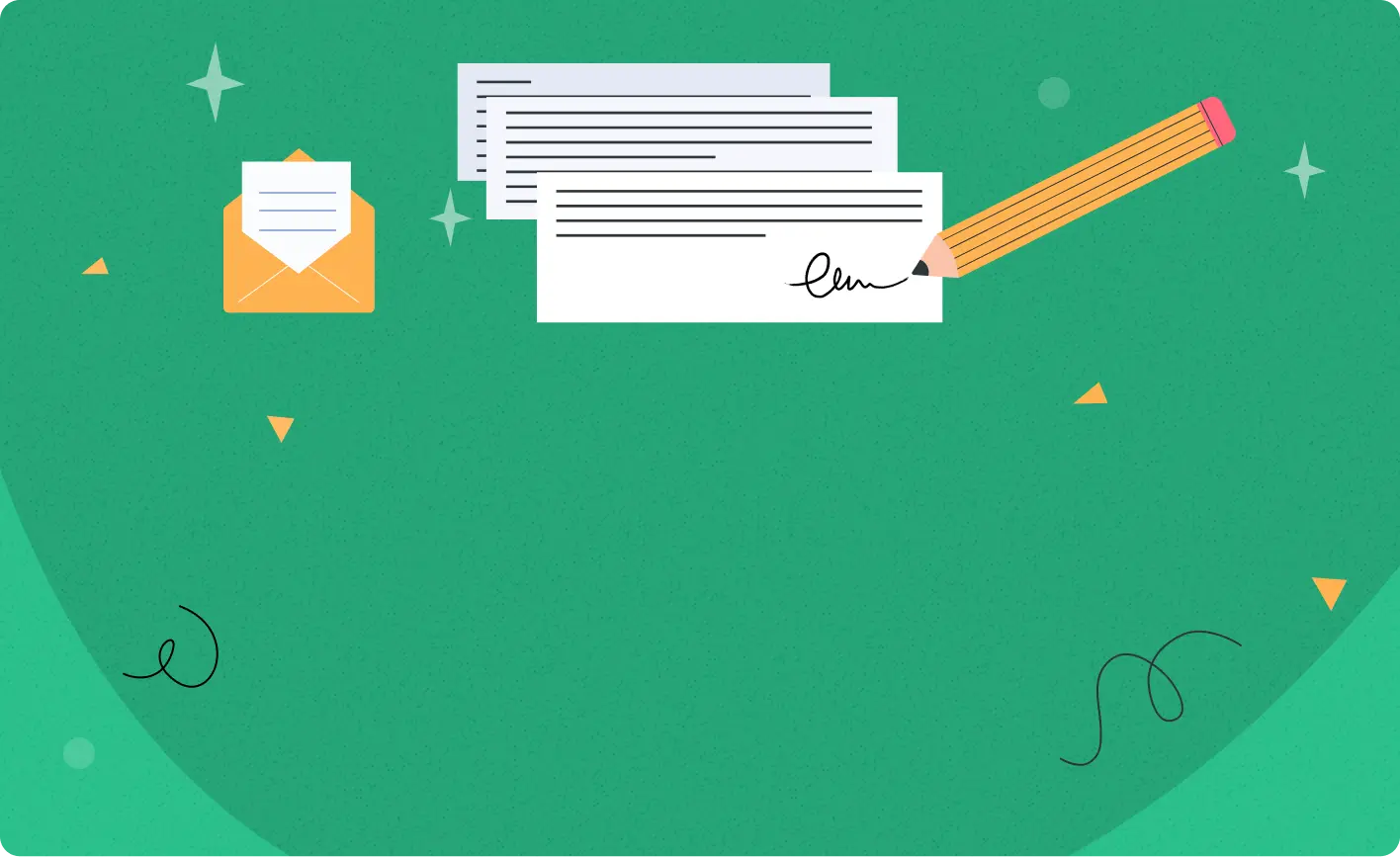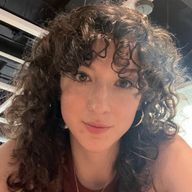The first few lines of your cover letter do more than introduce you—they can spark curiosity and help you stand out among dozens of applicants. Instead of leaning on tired phrases, a strong opening shows hiring managers exactly why you belong in the role.
In this guide, you’ll find practical ways to start your cover letter with purpose and energy. Whether you’re a recent graduate or a seasoned professional, you’ll learn how to write an introduction that feels authentic and gets attention.
Key takeaways
- A strong cover letter opening can instantly set you apart from other candidates.
- Leading with genuine enthusiasm shows you’ve done your research and care about the role.
- Highlighting a specific achievement makes your introduction feel credible and results-focused.
- Referring to a recent company milestone or a mutual connection adds relevance and trust.
- Generic first lines like “I am writing to express my interest” are easy to overlook.
- A clear, tailored first paragraph is often all it takes to make a memorable first impression.
Try Enhancv’s Cover Letter Generator to instantly create a draft that reflects your unique strengths and voice.
Why your cover letter opening matters
Imagine sorting through a stack of 50 applications before lunch. Most cover letters start the same way, with polite but forgettable sentences.
Right after the salutation, your opening lines are your first (and sometimes only) chance to make a memorable impression. A clear, confident introduction tells the hiring manager you respect their time and know what you bring to the table.
When you lead with purpose—whether it’s an achievement, a story, or genuine enthusiasm—you set the tone for the rest of your application. It signals that you’re not just another candidate but someone worth meeting.
Powerful ways to start a cover letter
If you’ve ever stared at a blank page, wondering how to avoid the dreaded “I am writing to express my interest,” it can feel overwhelming. The good news is, there are plenty of ways to begin with purpose and personality.
Whether you’re just starting out or bringing years of experience, these strategies apply at any stage of your career—a strong cover letter isn’t judged by how long you’ve been working, but by how clearly you communicate your value. If you want to see this in action, check out these cover letter examples that open with confidence and clarity.
Here are some of the most effective approaches to make a strong impression right from the start.
Lead with genuine enthusiasm
Hiring managers can tell when you’re excited about the role. Instead of saving your interest for later, put it front and center. A sincere, specific statement of enthusiasm can make your cover letter feel personal and memorable.
Example:
I was excited to see your opening for a Marketing Manager at Patagonia. Your focus on bold, community-driven campaigns is exactly what inspired me to build my career in brand storytelling.
Highlight an achievement you’re proud of
If you want to establish credibility immediately, start with an accomplishment that shows what you’re capable of. A clear result or milestone demonstrates you’re prepared to deliver.
Example:
After leading my team to grow online sales by 60% last year, I’m eager to help Shopify expand its digital reach.
Mention a referral or mutual connection
When someone within the company has recommended you, it’s worth mentioning in your opening. A referral can create instant trust and pique a hiring manager’s curiosity.
Example:
When Priya Patel shared that you were looking for an experienced operations lead at Airbnb, I knew this role could be the perfect next step in my career.
Reference something recent about the company
You don’t need an insider connection to show you’re paying attention. Pointing to a recent company achievement or initiative proves you’ve done your homework and have a genuine interest.
Example:
Your recent launch of the sustainability program at Unilever caught my attention. As a supply chain analyst passionate about environmental responsibility, I’d love to support your efforts to reduce waste.
Share a short, relevant story
A well-chosen anecdote can be more compelling than a list of skills. Think about a moment that sparked your passion or shaped your career path, then connect it to the role you’re applying for.
Example:
When I built my first website as a teenager, I didn’t realize it would lead to a decade-long career in UX design. Today, I’m excited to bring that same curiosity and dedication to Adobe.
Offer a clear value proposition
Sometimes the most powerful opening is a simple statement of how you can contribute. This approach works especially well for senior roles or highly specialized positions.
Example:
You need a finance leader who can drive cost savings without compromising growth. That’s exactly where I excel, and I’d welcome the chance to contribute at Microsoft.
Even the best opening sentence can get overlooked if your cover letter isn’t easy to read.
Make sure your formatting is clear and your overall structure is consistent:
- Use a font that matches your resume, like Arial, Calibri, Rubik, Lato, or Times New Roman.
- Keep margins between 0.5 and 1 inch.
- Align your text to the left and add space between paragraphs.
- If you’re submitting a PDF, double-check that your layout and outline look the same across all devices.
Adjust your tone to match the company culture and industry expectations.
No matter which approach you choose, remember to keep your first paragraph concise. Aim for no more than three sentences, and focus on clarity over cleverness. The goal is to quickly show the reader why you’re a great match.
What not to write in your opening lines
Even the strongest resume can lose momentum if your cover letter begins with something bland or overly formal. Hiring managers see the same recycled phrases over and over, and most don’t make a lasting impression.
Generic first lines to avoid:
- “I am writing to express my interest in the Marketing Manager position.”
- “To whom it may concern, I am applying for the open role at your organization.”
These sentences might feel polite, but they don’t say anything specific about you or why you care about the role. They can also signal that you’ve copied a generic template without much thought.
Instead of announcing that you’re applying, use your first sentence to share something personal, confident, or connected to the company’s mission. Even a simple statement that shows you’ve done your research can be far more compelling.
PRO TIP
If your opening line could fit any job posting, take a moment to rewrite it. A strong start should feel like it was written just for this opportunity.
Final checklist to test your opening paragraph
Before you hit “send,” take a moment to read your first few sentences out loud. A strong opening should feel focused, relevant, and true to your voice. If you’re not sure whether yours is ready, this checklist can help you decide.
Quick self-review before you hit send
- Does it feel tailored to this company and role?
- Have you shown why you’re interested in this opportunity, not just any job?
- Is your tone appropriate for the industry and company culture?
- Have you shared something specific—a result, a story, or an insight?
- Is it no longer than three sentences?
- Would this opening make you curious to keep reading?
If you can check every box, you’re well on your way to a cover letter that feels personal and compelling. And if you’re still unsure, it’s worth revising until your first lines reflect your enthusiasm and potential.
If you’re sending your cover letter as an email (sometimes called an e-note), keep it even more concise. You can use the same opening strategies, but trim your first paragraph to one to two sentences, skip the full address block, and include your contact information below your email signature.
A short, focused e-note is easier to read on screens and shows respect for the recipient’s time.
Author’s take
And remember, a well-executed first impression also depends on signing off a cover letter with clarity and confidence.
Conclusion
The first lines of your cover letter set the tone for everything that follows. When you write with focus and energy, you show why you’re the right fit. There’s no single formula—whether you lead with a story, an achievement, or enthusiasm, make sure it sounds like you.
A clear closing reinforces your message. Thank the reader for their time, and if you don’t hear back within a week or two, follow up with a polite email to express your continued interest.
You can also explore the Cover Letter Builder for step-by-step guidance and polished templates that will help you get noticed.




